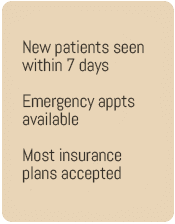STOMACH CANCER TREATMENT
According to the American Cancer Society, stomach cancer is more common in older people. An estimated six out of every 10 people diagnosed with stomach cancer are 65 or older. At Personalized Hematology-Oncology, we perform genetic testing and provide a personalized, targeted stomach cancer treatment to address each patient’s particular type of stomach cancer. We strive to provide a higher quality of care and increase patient survival rates through advanced genome science.
About Stomach Cancer
Stomach or gastric cancer is the uncontrolled growth and spread of mutated cells in the lining of the stomach. Cancers in the stomach tend to develop slowly over the span of years after pre-cancerous changes occur. Many of these changes produce no symptoms and often go undetected. Symptoms, detection and treatment can vary depending on the location of the cancer in the stomach and the type of cancer present.
Stomach Cancer Risk & Prevention
Stomach cancers are twice as likely to affect men as women, as estrogen helps protect women against the development of cancer cells in the stomach. There are many different risk factors related to stomach cancer, including smoking, diet, genetics, diabetes and other gastric diseases. Besides living a healthy lifestyle, eating a diet low in salt that avoids processed meat, red meat, and pickled vegetables is recommended to help prevent gastric cancer.
Stomach Cancer Symptoms
Due to the slow growth nature of many stomach cancers, this disease often produces no visible symptoms or non-specific symptoms that may be attributed to other causes. For this reason, it is often difficult to diagnosis gastric cancers before they spread. Early symptoms are often associated with indigestion or heartburn, though less than 2% of these cases are due to cancer. Patients may also experience abdominal pain or appetite loss.
Symptoms of Stomach Cancer
- Indigestion or heartburn
- Abdominal pain
- Loss of appetite
- Bloody stools
- Vomiting
- Weight loss
- Trouble swallowing
- Abdominal swelling
- Constipation or diarrhea
- Fatigue
- Jaundice (yellowing of skin or eyes)
Stomach Cancer Early Detection & Diagnosis
Since gastric cancers are so difficult to diagnose, it is important to be aware of the risk factors – such as family history of stomach cancer, salty diet, infection with Helicobacter pylori, long-term stomach inflammation, pernicious anemia, smoking and stomach polyps. If you are a high-risk patient and experience symptoms, your doctor can run a series of tests to detect any abnormalities. A combination of blood tests, imaging tests such as a CT scan or positron emission tomography (PET) scan, or exploratory surgery may be performed to diagnose.
Stomach Cancer Treatment in Raleigh, NC
Because every patient and every cancer is different, Personalized Hematology-Oncology develops customized therapies based on the particular molecular make-up of each individual’s cancer cells. This gives our oncologists the invaluable insights they need to deliver the most effective treatment for the particular type of stomach cancer.

